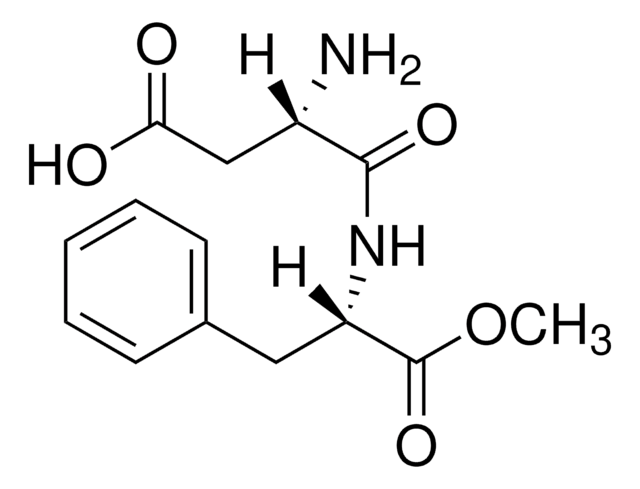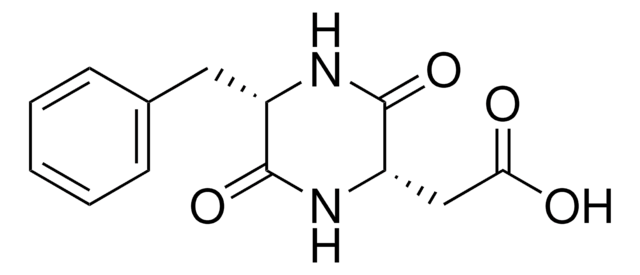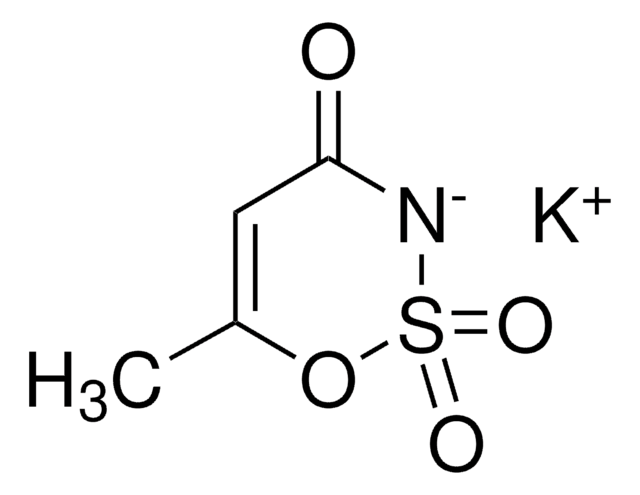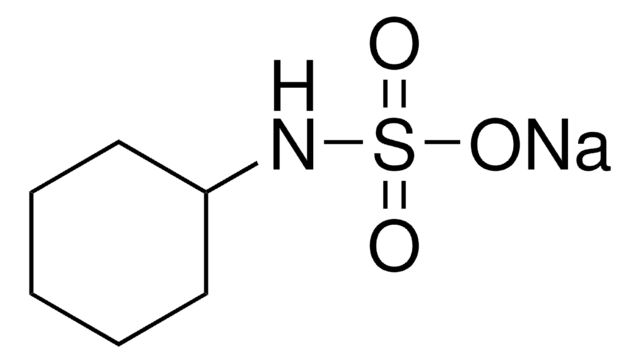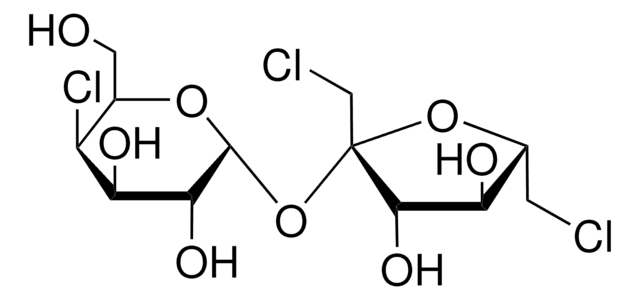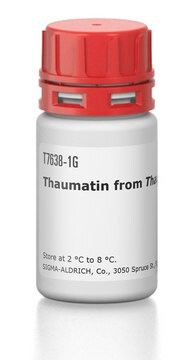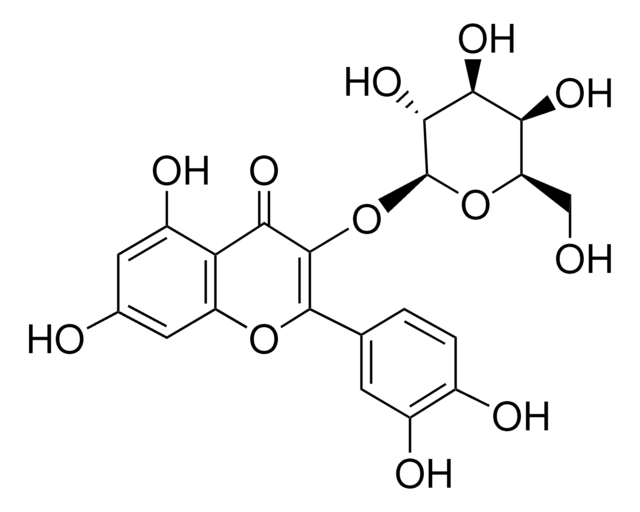推薦產品
等級
pharmaceutical primary standard
agency
EP Reference Standard
API 家族
aspartame
製造商/商標名
EDQM
應用
pharmaceutical (small molecule)
格式
neat
儲存溫度
2-8°C
SMILES 字串
COC(=O)[C@H](Cc1ccccc1)NC(=O)[C@@H](N)CC(O)=O
InChI
1S/C14H18N2O5/c1-21-14(20)11(7-9-5-3-2-4-6-9)16-13(19)10(15)8-12(17)18/h2-6,10-11H,7-8,15H2,1H3,(H,16,19)(H,17,18)/t10-,11-/m0/s1
InChI 密鑰
IAOZJIPTCAWIRG-QWRGUYRKSA-N
尋找類似的產品? 前往 產品比較指南
一般說明
This product is provided as delivered and specified by the issuing Pharmacopoeia. All information provided in support of this product, including SDS and any product information leaflets have been developed and issued under the Authority of the Issuing Pharmacopoeia. For further information and support please go to the website of the issuing Pharmacopoeia.
應用
Aspartame EP Reference standard, intended for use in laboratory tests only as specifically prescribed in the European Pharmacopoeia.
包裝
The product is delivered as supplied by the issuing Pharmacopoeia. For the current unit quantity, please visit the EDQM reference substance catalogue.
其他說明
Sales restrictions may apply.
相關產品
產品號碼
描述
訂價
儲存類別代碼
11 - Combustible Solids
水污染物質分類(WGK)
WGK 2
閃點(°F)
Not applicable
閃點(°C)
Not applicable
客戶也查看了
Eva S Schernhammer et al.
The American journal of clinical nutrition, 96(6), 1419-1428 (2012-10-26)
Despite safety reports of the artificial sweetener aspartame, health-related concerns remain. We prospectively evaluated whether the consumption of aspartame- and sugar-containing soda is associated with risk of hematopoetic cancers. We repeatedly assessed diet in the Nurses' Health Study (NHS) and
Jean-Daniel Berset et al.
Chemosphere, 88(5), 563-569 (2012-04-17)
A HPLC-MS/MS method is presented for the simultaneous determination of frequently used artificial sweeteners (ASs) and the main metabolite of aspartame (ASP), diketopiperazine (DKP), in environmental water samples using the direct-injection (DI) technique, thereby achieving limits of quantification (LOQ) of
M Maersk et al.
European journal of clinical nutrition, 66(4), 523-529 (2012-01-19)
Observational studies indicate that sugar-sweetened soft drinks (SSSD) may promote obesity, among other factors, owing to low-satiating effects. The effect of energy in drinks on appetite is still unclear. We examined the effect of two isocaloric, but macronutrient, different beverages
Maria Maersk et al.
The American journal of clinical nutrition, 95(2), 283-289 (2011-12-30)
The consumption of sucrose-sweetened soft drinks (SSSDs) has been associated with obesity, the metabolic syndrome, and cardiovascular disorders in observational and short-term intervention studies. Too few long-term intervention studies in humans have examined the effects of soft drinks. We compared
T J Maher et al.
Environmental health perspectives, 75, 53-57 (1987-11-01)
The artificial sweetener aspartame (L-aspartyl-L-phenylalanyl-methyl ester), is consumed, primarily in beverages, by a very large number of Americans, causing significant elevations in plasma and, probably, brain phenylalanine levels. Anecdotal reports suggest that some people suffer neurologic or behavioral reactions in
我們的科學家團隊在所有研究領域都有豐富的經驗,包括生命科學、材料科學、化學合成、色譜、分析等.
聯絡技術服務